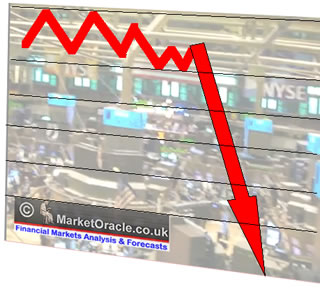Washington Targets Commodity ETF's
Commodities / Exchange Traded Funds Sep 12, 2009 - 10:13 AM GMTBy: Ron_Rowland
 When it comes to investing in commodities, the people I know have two opposite emotions — either obsessed or terrified.
When it comes to investing in commodities, the people I know have two opposite emotions — either obsessed or terrified.
I can see why. The commodity markets — contracts representing tangible goods like gold, oil, grains, etc — are known for sharp reversals and wild volatility. The potential profit can be enormous if your forecast is correct. If you’re wrong … let’s just say the results aren’t pretty.
Today I’m going to tell you about some of the best new investment instruments created in my lifetime — and how their very existence is under attack from powerful vested interests.
Commodity ETFs Revolutionize Investing!
Until recently, commodity investing was mostly restricted to professional traders, large institutions and a few intrepid individuals. This began to change with the introduction of commodity-based ETFs.
The idea wasn’t really so complicated: Start a fund whose price is based on a commodity market or a commodity-related index. Simple in concept, but difficult in reality mainly because of legal restrictions, these took a long time to resolve even as stock-based ETFs thrived.
 |
| SPDR Gold Shares (GLD) was an immediate success. |
Finally, the first commodity ETF launched in 2004. SPDR Gold Shares (GLD) was an immediate success. With the path now open, a flurry of similar funds hit the market in the next few years, tracking all kinds of commodities.
It didn’t hurt that this period was accompanied by a huge bull market in all kinds of natural resources. Crude oil went from less than $40 to more than $140 per barrel, gold climbed from around $400 an ounce to over $1,000, and corn jumped from $2 all the way up to $6!
With investors clamoring to get into booming commodities but afraid to trade highly-leveraged futures and options, these ETFs came at the perfect time.
Many were actually offered under a new structure called exchange-traded notes, or ETNs, that look a lot like ETFs but have some important differences. (See my February 6, 2009 Money and Markets column about the unique risks of ETNs.)
Three Kinds of Commodity Funds
Commodity ETFs and ETNs can be broken down into three groups:
1. Broad-based: These track an index that includes many different commodity markets. These are very useful to long-term investors who want to allocate a small portfolio slice to commodities and don’t care so much about following particular markets. Some examples are …
- iShares S&P GSCI Commodity Index (GSG)
- PowerShares DB Commodity Index (DBC)
- GreenHaven Continuous Commodity (GCC)
2. Commodity Sectors: This type of fund tries to cover a particular category of commodities, like energy, agriculture, metals, etc. These are naturally more volatile than the broad-based funds, but have the potential to move much higher if the sector takes off. This group includes funds like …
- PowerShares DB Energy (DBE)
- PowerShares DB Agriculture (DBA)
- Elements Rogers ICI Metals ETN (RJZ)
3. Specific Commodities: Funds in this category track the price of one particular market, like GLD that I mentioned above. These are considered very speculative. Here are some you might have heard about …
- United States 12-Month Oil Fund (USL)
- iPath DJ AIG Sugar ETN (SGG)
- iPath DJ AIG Copper ETN (JJC)
As with stock ETFs, some commodity ETFs and ETNs are designed to deliver leveraged and/or inverse returns. These features can be useful but also bring extra volatility and risks. They should be used very cautiously.
Regulatory Chaos Threatens to Eliminate Innovation
 |
| A bureaucratic turf war is threatening the markets. |
I’m sure you’ll agree that having these alternatives available is a good thing for investors, even if commodities aren’t for you. So you might be surprised to learn that regulators are well on the way to eliminating your ability to invest in commodities with ETFs/ETNs.
Why? Several reasons, but for the most part it is a bureaucratic turf war. The Commodity Futures Trading Commission (CFTC) has long had a monopoly on the regulation of these markets. They (and their allies in Congress) would like to keep it that way.
ETFs and ETNs fall under the jurisdiction of the Securities and Exchange Commission (SEC). The CFTC can control some aspects of their activity, but on most issues the SEC is in charge.
Recent actions by the CFTC are causing some commodity ETF and ETN sponsors to reconsider whether this business has a long-term future. By enforcing “position limits” against the funds, the CFTC can effectively cap their size — which can make them less profitable for the sponsors and less liquid for investors.
The boogeyman is “speculation,” which some people think got out of hand when commodity prices shot so high in 2007-2008. I think they’re barking up the wrong tree. Financial markets are all about speculation! It’s not a bad thing, as long as the process is fair to all sides.
The struggle over these issues is ongoing. No one knows when — or how — it will be resolved. Some sponsors aren’t waiting. Just last week, Deutsche Bank announced it would liquidate its PowerShares DB Crude Oil Double Long ETN (DXO) as of yesterday (September 9). Investors who still own DXO today will receive cash equal to the net asset value as the shares have stopped trading.
 |
| Financial markets are all about speculation. |
Other funds like United States Natural Gas Fund (UNG) have stopped issuing new shares, allowing their share price to deviate from the actual value. This means new buyers are paying more than they should.
Sounds like a mess, doesn’t it? You are exactly right. I am saddened to see these innovative new funds threatened for no good reason. I want small investors to have choices, and I don’t want the commodity markets to be dominated by a small number of powerful institutions.
If you’re thinking about buying a commodity-related ETF or ETN, I highly suggest you do some homework first. Make sure that you’ll be able to stay in the fund you pick long enough to achieve your objectives.
I wish I could be more specific, but keep in mind we’re dealing with the U.S. government! It’s very hard to predict what they will do. Investors deserve better — so cross your fingers that the regulators come to their senses soon.
Best wishes,
Ron
P.S. I speak with Sean Brodrick every week about commodities, commodity ETFs, and commodity-related investments. He runs a service called Red-Hot Commodity ETFs. If you invest in commodity ETFs, or are considering it, then Sean and Red-Hot Commodity ETFs can help you stay on top of new regulatory developments and point you toward commodity-related ETFs that are not subject to CFTC scrutiny.
This investment news is brought to you by Money and Markets . Money and Markets is a free daily investment newsletter from Martin D. Weiss and Weiss Research analysts offering the latest investing news and financial insights for the stock market, including tips and advice on investing in gold, energy and oil. Dr. Weiss is a leader in the fields of investing, interest rates, financial safety and economic forecasting. To view archives or subscribe, visit http://www.moneyandmarkets.com .
Money and Markets Archive |
© 2005-2022 http://www.MarketOracle.co.uk - The Market Oracle is a FREE Daily Financial Markets Analysis & Forecasting online publication.



